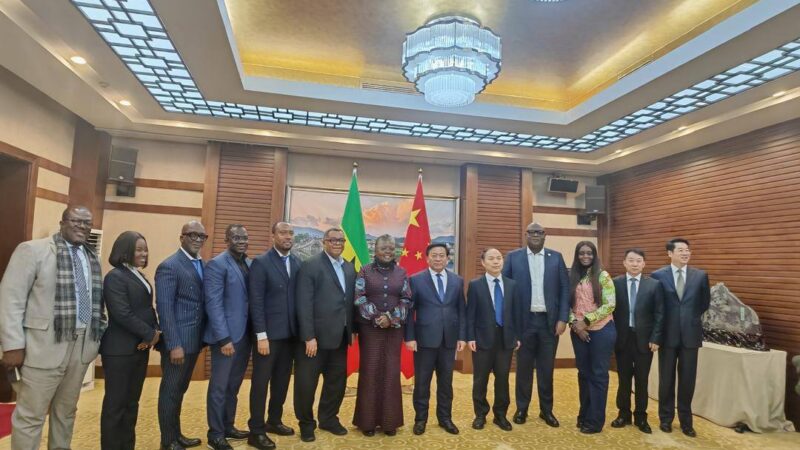Realigning Lesotho’s Fisheries and Aquaculture Strategies with Continental Policy Frameworks
Recognizing the importance of aligning Lesotho’s fisheries and aquaculture strategies with continental policy frameworks, AU-IBAR facilitated a consultative and validation workshop hosted by the Kingdom of Lesotho, from October 23rd to 25th, 2024. This workshop, held under the Fisheries Governance Project 2, implemented by AU-IBAR and AUDA-NEPAD focused on harmonizing Lesotho’s national strategies and agricultural investment plans with the African Union’s Policy Framework and Reform Strategy for Fisheries and Aquaculture in Africa (PFRS) and enhancing resilience through climate change adaptation.
Mr. Rafik Nouaili, representing Dr. Huyam Salih, Director of AU-IBAR, expressed gratitude to the workshop participants for their commitment to this realignment process, acknowledging the valuable input of diverse stakeholders, including the Institute of Fisheries Sciences, private sector organizations, NGOs, and the National Fisheries and Aquaculture Authority. He emphasized the importance of harmonized policies that align national priorities with continental goals and global standards, essential for building resilient and sustainable fisheries sectors across Africa.
The workshop was officially opened by Hon. Tseliso Mokhosi, Minister for Labor and Employment, representing the Minister of Agriculture, Food Security, and Nutrition. Hon. Mokhosi underscored the collective responsibility to safeguard marine ecosystems and foster sustainable growth in Lesotho’s fisheries and aquaculture sectors. He highlighted that effective policy alignment with the PFRS and relevant global instruments is essential for achieving shared objectives and meeting Africa’s climate change adaptation needs.
The workshop featured presentations on the PFRS and global instruments, along with collaborative sessions to align Lesotho’s national policies with these frameworks. Participants engaged in group discussions on integrating national agricultural investment plans with climate change strategies, enhancing policy coherence, and exploring best practices for domestication of global standards.
In the closing sessions, participants reviewed consultancy reports and adopted actionable recommendations to ensure the swift implementation of aligned policies. The workshop concluded with a collective commitment to sustained follow-up and implementation of key recommendations, with participants expressing appreciation for AU-IBAR’s critical role in supporting Lesotho’s efforts to enhance sustainability and resilience within its fisheries and aquaculture sectors.
Source : AU-IBAR






